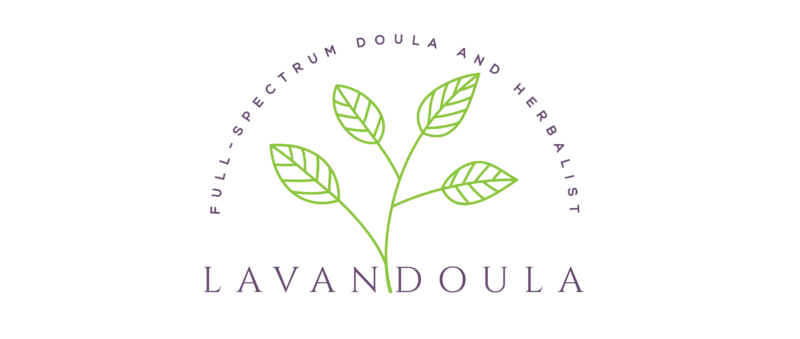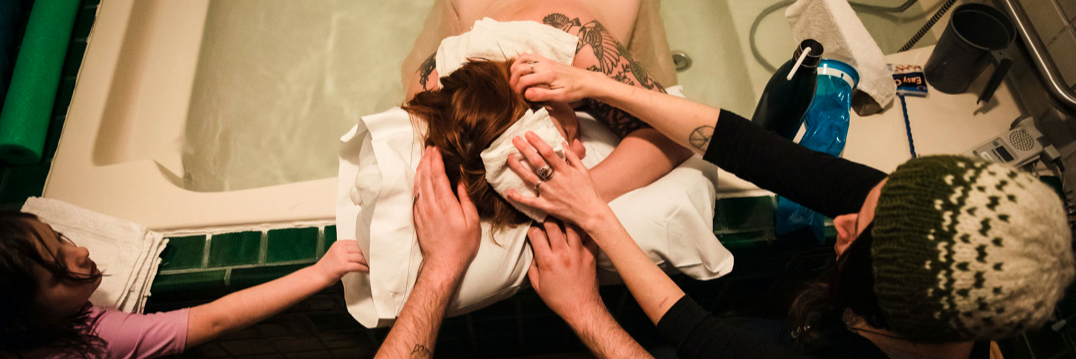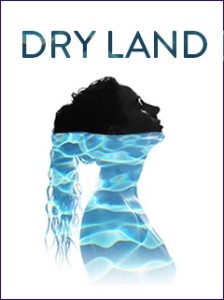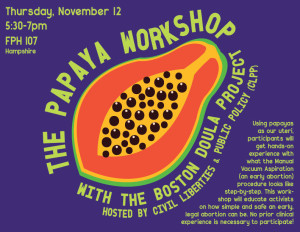 The Civil Liberties and Public Policy program at Hampshire is hosting an amazing lot of Fall 2015 events. One of which is a Papaya Workshop, or “how to use a manual vacuum aspirator using a papaya as a uterine model,” with me, from the Boston Doula Project!
The Civil Liberties and Public Policy program at Hampshire is hosting an amazing lot of Fall 2015 events. One of which is a Papaya Workshop, or “how to use a manual vacuum aspirator using a papaya as a uterine model,” with me, from the Boston Doula Project!
I’m lucky to have the week between on-call windows for birth clients, and I will head to the lovely western part of this state to help educate reproductive justice activists on how simple an abortion can be (mechanically). The workshop will be aimed toward those without clinical experience. As an educator of abortion doulas, I know how helpful it can be to see these tools in use before ever coming across them in clinic.
A Full-Spectrum Fertility Chart
A few weekends ago, I had the opportunity to teach first year apprentices at the CommonWealth Center for Holistic Herbalism while the school’s co-directors, Katja and Ryn, were out in Colorado at the American Herbalist’s Guild Symposium.
It was a really fun weekend. Kim from Blue Vervain Farm facilitated children’s health, my beloved roommate Gavin taught about men’s health from a refreshingly queer perspective, Danielle at Growing Habits helped with our cold and flu season materia medica and I was able to teach about women’s reproductive health from my full-spectrum doula perspective.
I began with giving some background on the fertility cycle. We are born with 4 million follicles. By the time we reach puberty, we have about 40,000, ready to mature one (or two)-at-a-time to be ovulated. Progesterone warms us, many hormones constantly in flux. Nobody’s cycle is quite as picture-perfect as the one I had fun drawing as a teaching tool.
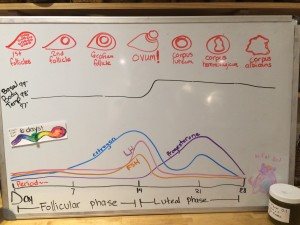
I am grateful for the opportunity to speak about fertility, pregnancy prevention, birth control options, miscarriage, abortion, abortion options, pregnancy in the first, second and third trimester, labor, birth, breastfeeding and postpartum considerations all in one day. (Not to mention the herbs! It is an herb school, afterall…)
It is true that while nearly one third of pregnancies end in miscarriage, it is one of the most silenced fertility experiences. It is true that while one third of women in the US will have an abortion before age 45, cultural stigma hides that “normalcy” from the mainstream. It is true that while the majority people who choose to have an abortion are already parents, our cultural dialogue around fertility states that abortion and birth are two opposites, never to be touched upon in the same sentence, never to be considered within the same lifetime.
As a doula, I have supported women who struggled to conceive for years, after having miscarriages medically managed by D&C procedures. I have supported survivors of violence, who had to terminate pregnancies that resulted from brutal attacks on their bodies. I have supported substance users choosing abortion, queer families choosing gestational parenthood, and single moms bereaving their babies, born still. My practice is full-spectrum.
Boston Doula Project partners with Company One Theatre
Emerging as the Lena Dunham of the theatre world, 21-year-old playwright Ruby Rae Spiegel — a finalist for the Susan Smith Blackburn prize — writes a brazen, no-holds-barred play about that time in your life when no one else can possibly understand what you’re going through. A story about abortion, bad jokes, bathing suits, and friendship, DRY LAND, a New York Times critics’ pick, is a brave portrayal of the contemporary American teenager that epitomizes What’s Next in American theatre.
Dry Land is the story of a Florida teenager, who, when faced with an unplanned pregnancy, struggles to find the care she needs. In a state where a minor would need to access a judicial bypass, or tell their parents what is happening, the protagonist ends up ordering medication from the Internet. The play is intense for some, but I think it paints a fairly realistic picture of what can happen when legal barriers and stigma interrupt reproductive healthcare. This month, I have had the opportunity to participate in community “talk backs” after several productions of Dry Land.
Boston Doula Project was approached to help with planning some aspects of the play, as well as to debrief with audiences around what an abortion doula is, the work we do with BDP and how the protagonist’s friend (and the only person aware of what she is going through) acts as her doula.
We chat about many topics, from how to support a friend or partner going through an abortion to how teenagers without sex education are accessing their information about reproductive healthcare. We also get audience input about how the play affected them, how they are interested in our work and that has been a really meaningful part of this partnership for me.
Other community partners can be seen here, and I have had the privilege of speaking with folks from the Peer Health Exchange as well as the Suffolk University Center for Women’s Health and Human Rights.
A spiral staircase of Reishi
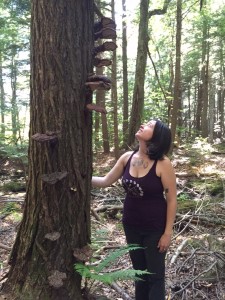
I’ve come across Ganoderma tsugae in many forests across Massachusetts this summer. Happy autumnal equinox.
Herbs for Pregnancy and Birth Workers
Herbs for Pregnancy and Birthworkers
Wednesday, September 16 2015, 7-9pm. $20 (or a donation to the Boston Doula Project)
At the CommonWealth Center for Holistic Herbalism in Brookline, MA
Are you pregnant, or hoping to be, and wondering how to safely and effectively use herbal remedies? Do you work around pregnancy and wish you knew what types of alternatives are good to suggest? Many folks approach midwives, lactation consultants, and doulas for insight on pregnancy and postpartum support herbs. This class, taught by a professional birth doula and herbalist, will help clarify some myths about herbs in pregnancy. (Wait–did Baby Center really just say nettle could cause a miscarriage?) We’ll cover the basics from nourishing uterine tonics and postpartum sitz baths to self-care herbs for birthworkers.
To register, check out the CommonWealth Center website.
As I prepare for my class for Pregnancy and Birth Workers tonight at the CommonWealth Center for Holistic Herbalism, I am looking at my list of materia medica. Some herbs I hope to go over tonight have been previously mentioned in this post. Others, I hope to add to the list as time goes on.
Calendula (Calendula officinalis) – this soothing, lymphatic support herb is great when added to a postpartum sitz bath. I love to use calendula oil on backed-up lymph (like in my neck/behind my ears when I’m getting a cold), or to sooth my belly when I’m feeling bloated.
Goat’s Rue (Galega officinalis) – has been used to support milk production since dairy farmers noticed their goats increased output from eating this common meadow weed. A great breastfeeding herb, and contains chromium, which is a trace mineral helpful for glucose metabolism and curbing sugar cravings!
Marshmallow (Althea officinalis) – a moistening and soothing plant. Cold brew of the root is how you get the most mucilage (nourishing long-chain polysaccharides). I always add a pinch to long-steep lactation tea.
Moringa (Moringa oleifera) – a plant not-at-all native to New England, but often used by nursing mothers in the product “GoLacta”. My opinion is that almost any herb taken in a tea form will be more effective (as many have milk supply issues from simply being dehydrated). Morninga is much cheaper in loose-leaf tea than in the marketed capsules, also.
Milk Thistle (Silybum marianum) – a gentle, trustworthy liver-support herb. Often seen in “mother’s milk” tea blends, but the best way to take the herb is in capsules of the ground up seed. Historically used for nursing support, my theory is this plant supports lactation by helping the liver process the hormonal dump of postpartum reality (cortisol, anyone?)
Plantain (Plantago officinalis) – an edible local weed. Used to soothe bee stings and rashes, support kidneys and heal guts. I always add a little to my postpartum sitz baths.
Herbstalk 2015!
I hope all the Boston-area folks interested in herbs can stop by Herbstalk this weekend. There is a FREE marketplace, herbal vendors, classes for all levels and interests.
I’ll be tabling with my beloved school. The CommonWealth Center for Holistic Herbalism. Come say hi!

How to get kids (and their parents) to eat wild greens
I was recently invited to host an herb walk for the birthday party of a five-year-old budding herbalist. Among learning about medicinal and edible flowers, leaves and roots that grow in her area at this time of year, she requested a few interesting herbal snacks.
Dandelion fritters!

While searching for my dandelions for this recipe, I noticed that most of our bright, yellow neighbors were in between flowering that day. Dandelions continually seed, grow quick, and revisit us all summer long. This led me to pick a bunch of greens (with a few flowering tops) and make more pancake-style fritters for the party.
Approximate recipe:
3-4 cups of wild dandelion greens and flowering tops, rinsed, chopped and dried
3/4 can of low-fat coconut milk (I’m all about fat, but this just mixes better)
1/3 cup chickpea flour
1/3 cup rice flour (brown or white, whichever you prefer)
Curry spices (turmeric, cumin, coriander, fennel, fenugreek) and sea salt
Olive oil
1. Mix the coconut milk with the flours and spices. You should get a thick pancakey batter. If it seems too dry, add a splash more coconut milk. If it seems too wet, add a dash more chickpea flour.
2. Once patted-dry, mix your chopped dandelions into the batter. (It’ll look chunky and weird.)
3. Coat the bottom of a frying pan with olive oil, and heat to medium.
4. Test out a mini-fritter (about a tablespoon) to see if your temperature is right.
5. Fry your dandelion batter in batches, each about a 2-3 tablespoon blob.
6. Flip them carefully after three minutes (or when golden brown), and cook an additional 1-2 minutes on the other side.
7. Remove from oil, place on a paper towel to drain and sprinkle with sea salt while still hot.
Parents and kids alike LOVED them! The flavor is more of an Indian restaraunt’s pakora without the unhealthy vegetable oil. Wild Green Party food a success!
Perhaps I will share my recipe for lightly honey-sweetened chamomile cookies next…

Meet the Doulas Night at Mama & Me
Doula Information Night
Wednesday, April 8 2015, 6-8pm. FREE.
At Mama & Me in the Brewery in Jamaica Plain
http://www.mymamaandme.com/doula/
PART I: WHAT IS A DOULA? DO I NEED A DOULA? | 6:00-7:00PM
Join other new and expectant parents for a night of FREE education on what a doula is, what a doula does, and how a doulaʼs presence can benefit your birth and help you adjust to life at home with your little one!
PART II: MEET THE DOULAS | 7:00-8:00PM
Doulas from in the Greater Boston Area will be on hand to answer your questions, offer personalized referrals, and represent some of the wonderful variety of personalities, ages, backgrounds, and skills you can find in a birth or postpartum doula. Expectant parents will have time to meet individual doulas and conduct brief interviews with them.
We will answer many common questions birth and postpartum doula services, such as:
What does a doula do?
What do services usually entail?
Why would I want to hire a doula?
How would a doula work with my partner?
How would I go about finding the right doula?
Studies* have shown many benefits of working with a doula, including:
Shorter labors
Fewer requests for epidurals
Less frequent use of forceps or vacuum
Increased confidence in birth partners
Fewer cesareans [OR Lower cesarean rate]
Increased success with breastfeeding
More time to bond with your baby
An easier transition into parenthood
Next Doula Information Night
Parents in the Boston area should be made aware of Mama and Me, a space that holds events and classes for young families in Jamaica Plain. They offer a range of prenatal, postpartum and child development classes, including some free events!
Upcoming on Wednesday, April 8 from 6-8pm will be their next FREE Doula Information Night. I will be present (if no babies come that night) to meet with expecting parents and chat about my services as a birth and postpartum doula, including placenta encapsulation. Come out and meet the doulas in your community!
PART I: WHAT IS A DOULA? DO I NEED A DOULA? | 6:00-7:00PM
Join other new and expectant parents for a night of FREE education on what a doula is, what a doula does, and how a doulaʼs presence can benefit your birth and help you adjust to life at home with your little one!
PART II: MEET THE DOULAS | 7:00-8:00PM
Doulas from in the Greater Boston Area will be on hand to answer your questions, offer personalized referrals, and represent some of the wonderful variety of personalities, ages, backgrounds, and skills you can find in a birth or postpartum doula. Expectant parents will have time to meet individual doulas and conduct brief interviews with them.
We will answer many common questions birth and postpartum doula services, such as:
What does a doula do?
What do services usually entail?
Why would I want to hire a doula?
How would a doula work with my partner?
How would I go about finding the right doula?
Studies* have shown many benefits of working with a doula, including:
Shorter labors
Fewer requests for epidurals
Less frequent use of forceps or vacuum
Increased confidence in birth partners
Fewer cesareans [OR Lower cesarean rate]
Increased success with breastfeeding
More time to bond with your baby
An easier transition into parenthood
COST: FREE
Simmons College holds FREE Screening of The Vessel
More about this event for those of you who use Facebook.
I will be attending this screening, representing the Boston Doula Project and speaking a little about what we do before the film. Susan Yanow, local reproductive rights activist, will also be in attendance and I am very excited to hear her speak.
About The Vessel:
Dr. Rebecca Gomperts sails a ship around the world, providing abortions at sea for women with no
legal alternative. Her idea begins as a flawed spectacle, faced with governmental, religious, and military blockade.
But with each setback she faces, Rebecca hones a more refined mission, until she realizes she can use new technologies to bypass law—and train women to give themselves abortions using World Health Organization-researched protocols with pills.
From there we witness her create an underground network of emboldened, informed activists who trust women to handle abortions themselves. Vessel is Rebecca’s story: one of a woman who hears and answers a calling, and transforms a wildly improbable idea into a global movement.
